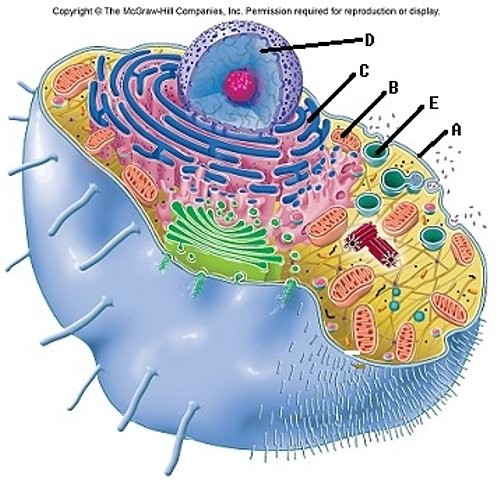Glands that have branched ducts and secretory cells that form sacs at one end of the ducts are classified as ___________ glands.
A. areolar
B. simple acinar
C. simple coiled tubular
D. compound acinar
E. compound tubuloacinar
D. compound acinar
You might also like to view...
 The cell is the basic unit of life. All cellular structures exhibit special functions. Match the structure with its function. What is the function of "D"?
The cell is the basic unit of life. All cellular structures exhibit special functions. Match the structure with its function. What is the function of "D"?
A. Site of protein synthesis B. Contains digestive enzymes C. Directs cellular activities, contains DNA D. Major site of ATP synthesis when oxygen is available E. Outer boundary of cell, controls entry and exit of substances
The outer surface of the hair is called the ________.
A. shaft B. root C. cuticle D. hair bulb E. medulla
What secretion do we intend to inhibit with the application of antiperspirants to the axillae (armpits)? Why apply a deodorant to the axillae?
What will be an ideal response?
Which of the following is one of the principal extracellular cations?
a. Bicarbonate b. Chloride c. Phosphate d. Sodium